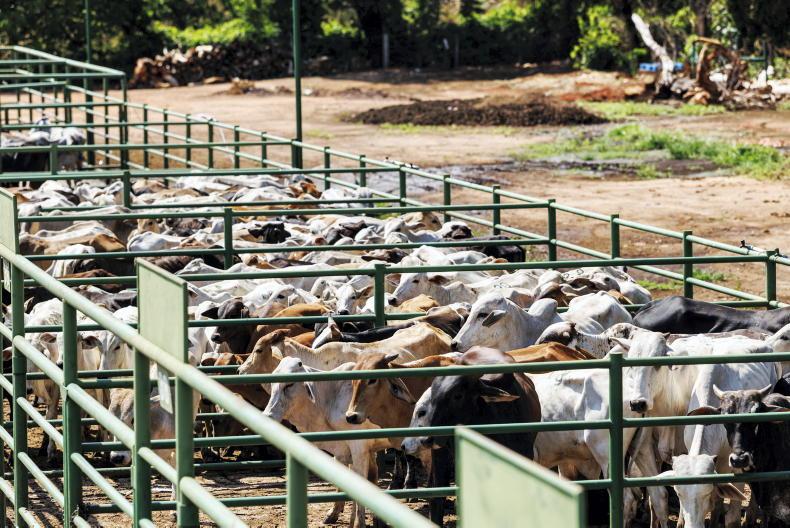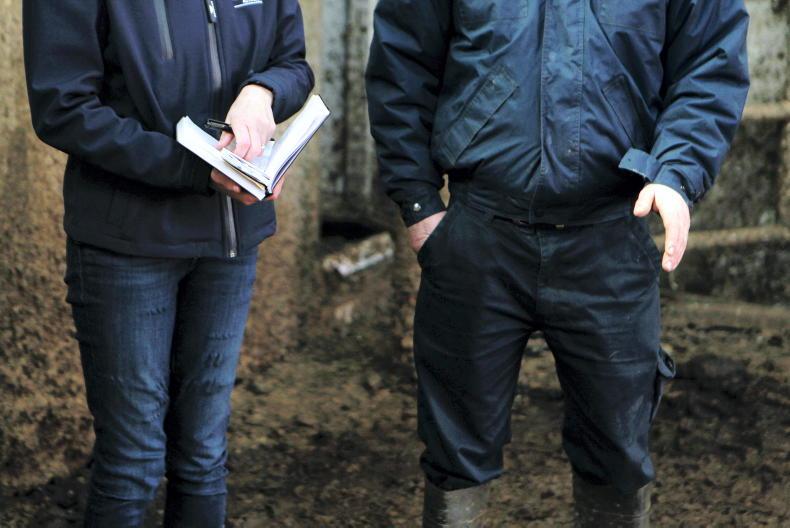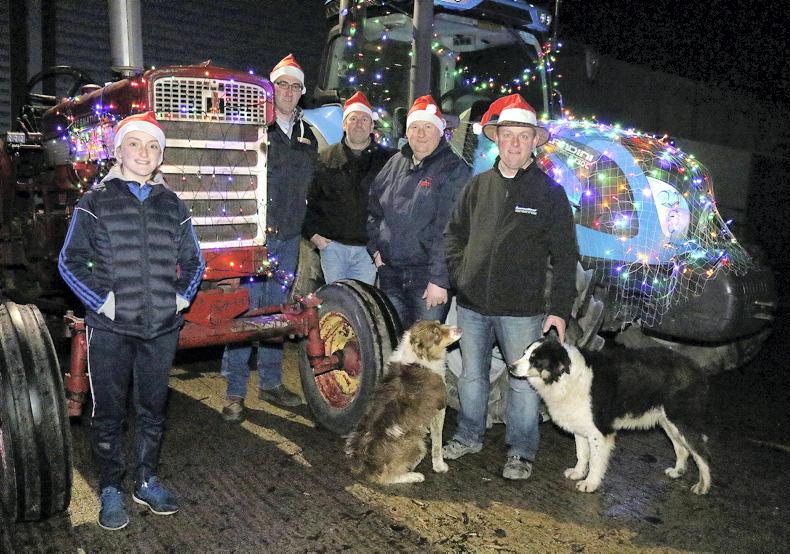Three farmers visiting the Irish Farmers Journal stand at the National Ploughing Championships last week broke down in tears in front of me. It was not something I was prepared for and – truth be told – not something I was fully equipped to deal with. However, I quickly realised that they were not looking for me to provide solutions; they simply wanted someone to listen.
It was an extremely sobering experience and one that forced me to think about the toll modern-day farming and sustained low incomes is having on farmers’ mental health.
I had been well aware of how farming was becoming an increasingly isolated occupation but had not fully appreciated the extent to which – on many family farms – husbands and wives now lead totally separate working lives. The tradition of a husband-and-wife team where jobs are shared and issues are discussed has been dismantled by the need for the family farm to secure off-farm income.
Even in a small business there is the opportunity to discuss issues and share responsibility for key decisions. In farming, this is no longer the case and when things go wrong, responsibility is heaped on to an individual’s shoulders. It is a heavy burden to bear, especially when the fallout can have such a devastating impact on family finances.
The dangers of isolation are further heightened when dealing with stress factors that exist outside the farm gate. Fear of inspections and the potential impact on farm income of any noncompliance issues are undoubtedly a constant grind on farmers. It has been a slow creep from when farmers were largely in control of their CAP payments, which were determined by the number of cows in the herd, male animals “punched”, or acres of grain planted to the system we have now – one where the regulations are much more technical and in many cases subjective, as we have seen in the debate around eligible and ineligible land.
While accepting that the Department of Agriculture must ensure compliance with EU regulations, few PAYE employees would welcome a structure where a large percentage of their annual salary was at risk from an unannounced inspection at any given time over the course of the year and subject to an individual’s interpretation of the regulations.
Added to this, many livestock farmers operate under the constant threat of disease outbreak – the implications of which are regulation/restrictions that effectively see you lose direct control of your herd.
I saw first-hand last week the extent to which a TB outbreak can totally devastate a farmer – not financially but mentally. Even months later, the pain of being forced to dispose of young calves that reflected years of careful breeding remains very real for him.
While weather has always been a stress factor for farmers, it has in many ways been a perfect storm for those operating from west Cork to Donegal and on marginal land in the midlands. Poor conditions have coincided this year with a collapse in market prices. Again, most of us can only imagine the mental stress on tillage farmers heading into an autumn where the bills associated with a growing crop that is now rotting into the ground are due to come through the post in the weeks ahead.
In livestock, we profile farmers in the west who have had stock housed for a number of weeks with little prospect of returning to grass for the remainder of the season. It takes a toll.
No one individual or organisation is to blame for creating the environment in which many farmers are now operating. However, that does not excuse stakeholders of responsibility when it comes to taking action.
The focus falls on our Government and the EU. There have been calls in recent weeks for emergency action. We hope that in his tour of the National Ploughing Championships, Minister for Agriculture Michael Creed recognised the level of strain on farmers and left the event focused on taking meaningful action that will alleviate pressures.
In addition, implementing the following five points needs to be considered:
Organisations engaging with farmers directly through discussion groups or in an advisory capacity should be trained on how to identify and engage with farmers that are suffering from mental stress. Farmers need to know how to manage stress and it needs to be on the agenda of every farmer meeting they attend.Teagasc and the Department of Agriculture need to ensure their staff dealing directly with farmers have the training necessary to identify and assist farmers in getting professional help. Officials need to realise the stress put on a farmer who has just been told that he/she has effectively lost control of their business due to disease restriction or that a percentage of his income has been taken from him due to a noncompliance issue. A care-based review of how the Department of Agriculture engages with these farmers should be carried out immediately. Provide follow-up support or counselling to farmers affected by a disease outbreak or in the event of a noncompliance issue. More immediately, if any farmer reading this is struggling to cope, don’t sit in silence. Professional help is available. Alternatively, sit down and talk with your family, your neighbour or your friends. Do not suffer in silence.
Three farmers visiting the Irish Farmers Journal stand at the National Ploughing Championships last week broke down in tears in front of me. It was not something I was prepared for and – truth be told – not something I was fully equipped to deal with. However, I quickly realised that they were not looking for me to provide solutions; they simply wanted someone to listen.
It was an extremely sobering experience and one that forced me to think about the toll modern-day farming and sustained low incomes is having on farmers’ mental health.
I had been well aware of how farming was becoming an increasingly isolated occupation but had not fully appreciated the extent to which – on many family farms – husbands and wives now lead totally separate working lives. The tradition of a husband-and-wife team where jobs are shared and issues are discussed has been dismantled by the need for the family farm to secure off-farm income.
Even in a small business there is the opportunity to discuss issues and share responsibility for key decisions. In farming, this is no longer the case and when things go wrong, responsibility is heaped on to an individual’s shoulders. It is a heavy burden to bear, especially when the fallout can have such a devastating impact on family finances.
The dangers of isolation are further heightened when dealing with stress factors that exist outside the farm gate. Fear of inspections and the potential impact on farm income of any noncompliance issues are undoubtedly a constant grind on farmers. It has been a slow creep from when farmers were largely in control of their CAP payments, which were determined by the number of cows in the herd, male animals “punched”, or acres of grain planted to the system we have now – one where the regulations are much more technical and in many cases subjective, as we have seen in the debate around eligible and ineligible land.
While accepting that the Department of Agriculture must ensure compliance with EU regulations, few PAYE employees would welcome a structure where a large percentage of their annual salary was at risk from an unannounced inspection at any given time over the course of the year and subject to an individual’s interpretation of the regulations.
Added to this, many livestock farmers operate under the constant threat of disease outbreak – the implications of which are regulation/restrictions that effectively see you lose direct control of your herd.
I saw first-hand last week the extent to which a TB outbreak can totally devastate a farmer – not financially but mentally. Even months later, the pain of being forced to dispose of young calves that reflected years of careful breeding remains very real for him.
While weather has always been a stress factor for farmers, it has in many ways been a perfect storm for those operating from west Cork to Donegal and on marginal land in the midlands. Poor conditions have coincided this year with a collapse in market prices. Again, most of us can only imagine the mental stress on tillage farmers heading into an autumn where the bills associated with a growing crop that is now rotting into the ground are due to come through the post in the weeks ahead.
In livestock, we profile farmers in the west who have had stock housed for a number of weeks with little prospect of returning to grass for the remainder of the season. It takes a toll.
No one individual or organisation is to blame for creating the environment in which many farmers are now operating. However, that does not excuse stakeholders of responsibility when it comes to taking action.
The focus falls on our Government and the EU. There have been calls in recent weeks for emergency action. We hope that in his tour of the National Ploughing Championships, Minister for Agriculture Michael Creed recognised the level of strain on farmers and left the event focused on taking meaningful action that will alleviate pressures.
In addition, implementing the following five points needs to be considered:
Organisations engaging with farmers directly through discussion groups or in an advisory capacity should be trained on how to identify and engage with farmers that are suffering from mental stress. Farmers need to know how to manage stress and it needs to be on the agenda of every farmer meeting they attend.Teagasc and the Department of Agriculture need to ensure their staff dealing directly with farmers have the training necessary to identify and assist farmers in getting professional help. Officials need to realise the stress put on a farmer who has just been told that he/she has effectively lost control of their business due to disease restriction or that a percentage of his income has been taken from him due to a noncompliance issue. A care-based review of how the Department of Agriculture engages with these farmers should be carried out immediately. Provide follow-up support or counselling to farmers affected by a disease outbreak or in the event of a noncompliance issue. More immediately, if any farmer reading this is struggling to cope, don’t sit in silence. Professional help is available. Alternatively, sit down and talk with your family, your neighbour or your friends. Do not suffer in silence.










SHARING OPTIONS